Home How Much Value Does Solar Add to a Home?
How Much Value Does Solar Add to a Home?
Homeowners globally are beginning to understand the incredible advantages solar panels provide. These advantages comprise both a decrease in electricity expenses and a boost in their property values.
Generally, solar panels can increase your home’s value by about 4%. This means that each kilowatt of solar energy installed can boost the value of your property by up to $6,000 or up to $29,000 for a 5kW solar system installation.
However, how much value solar panels add to your home may vary depending on factors such as the home’s location, the size of the solar installation, and the specific characteristics of the solar system.
In this blog post, we’ll explore the connection between solar panels and home value, discuss the factors affecting this value boost, and provide real estate perspectives on this exciting topic.
Table of Contents
ToggleShort summary
- Solar panels can increase your home’s value significantly, with each 1kW of solar installed adding up to $6,000 in additional value.
- Invest in quality solar panels and take advantage of government incentives for long-term financial savings, potentially resulting in a profit over time!
- Homebuyers are eager to invest extra for solar homes – make an impact on both your finances and the planet by investing now!
Solar panels and home value: the connection
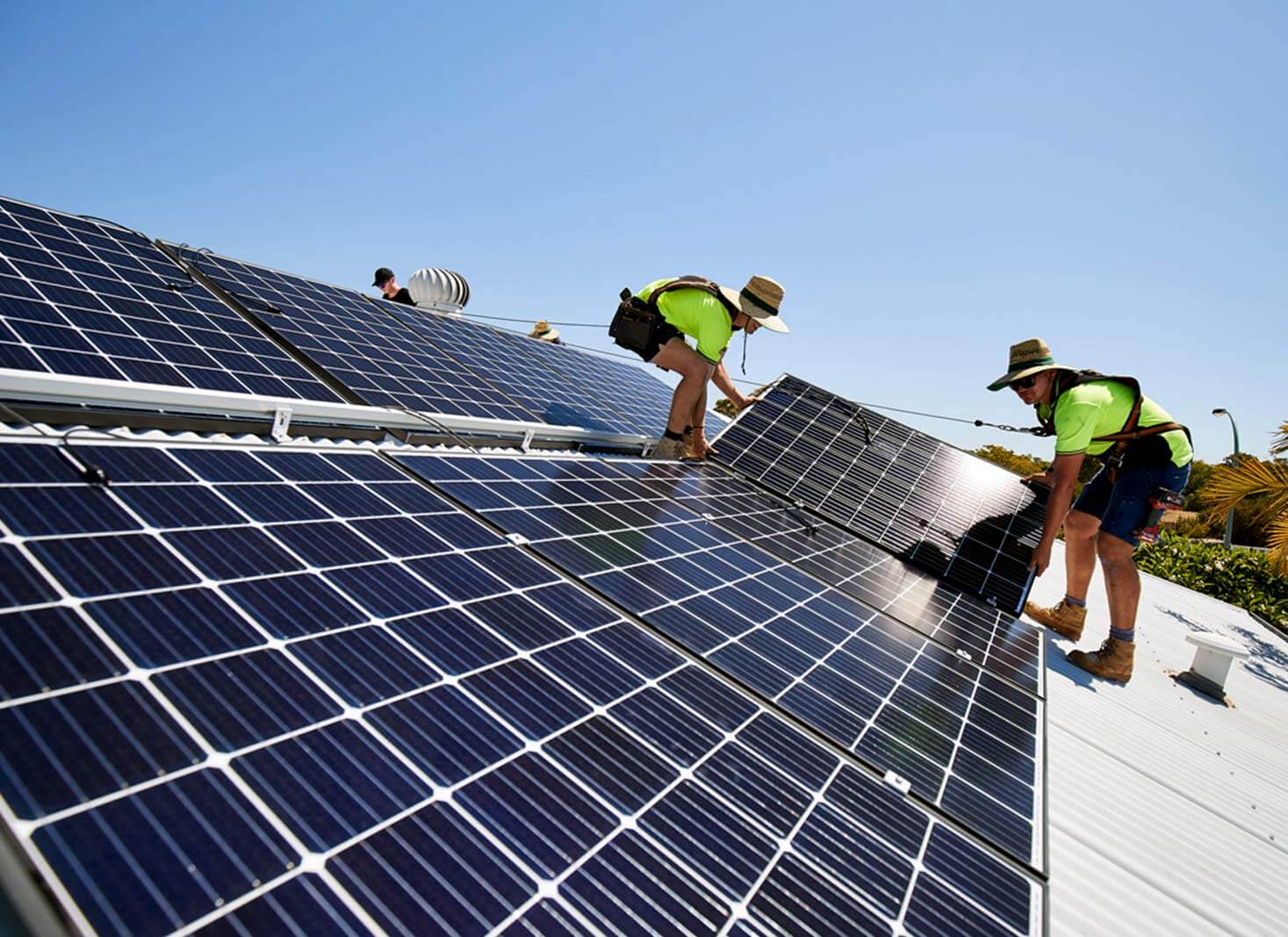
It’s no secret that solar panels are a sustainable and environmentally friendly way to generate energy for your home. But did you know that installing solar panels can increase your home’s value by a significant amount?
However, the exact amount may vary depending on factors such as the size of the installation, the location, and the overall value of your property. Let’s take a closer look at these factors and how they can affect the value of your home.
Solar power's impact on home value
Typically, the value of your home increases depending on the number of solar panels installed on your roof. For every kilowatt of solar power you install, you can boost your home’s value by up to $6,000. A 5kW installation could add up to $29,000 to the value of your home.
Here is a table showing the value solar panels can add to your property, depending on the size of your solar system.
| Solar system size | Home value boost (AUD) |
|---|---|
| 1 kW | $6,000 |
| 3 kW | $18,000 |
| 5 kW | $29,000 |
| 6 kW | $35,500 |
| 7 kW | $41,500 |
| 8 kW | $46,000 |
| 9 kW | $53,550 |
| 10 kW | $59,700 |
| 11 kW | $64,650 |
| 12 kW | $70,500 |
Solar panels can increase your property’s value by up to 4%. For instance, a home valued at $500,000 can have a value boost of between $17,000 and $20,000.
This makes investing in solar energy a wise and profitable decision for Australian homeowners.
By reducing electricity costs and providing a renewable energy source, solar panels can greatly improve the appeal of your property.
Long-term benefits of installing solar panels include not only an increase in the value of your home, but also reduced energy usage and costs. With solar power, you’re not only investing in a greener future, but also paving the way for potential future savings on your energy bills.
Factors affecting solar panel value boost
Several factors play a role in determining the value boost that solar panels can provide to your property. These factors include:
- The location of the home: Solar installations in a developed, active market can give you a higher ROI compared to a similar installation in a less developed market.
- The size and quality of your solar system: The value increase of your home will depend on how many solar panels you install and their quality. Installing many good-quality panels will significantly boost your home’s value.
- The size and value of your home: Installing solar panels on a large, expensive home will give it a good boost in property value.
- The specific characteristics of your solar system: The solar panels’ age, condition, and warranty can also contribute to their value boost. For instance, newer panels that are in good condition will have a higher value boost on your home than older panels.
Other factors like tilt, orientation, latitude, and climate can influence the performance of solar panels and, in turn, their value boost.
Do homes with solar sell faster?
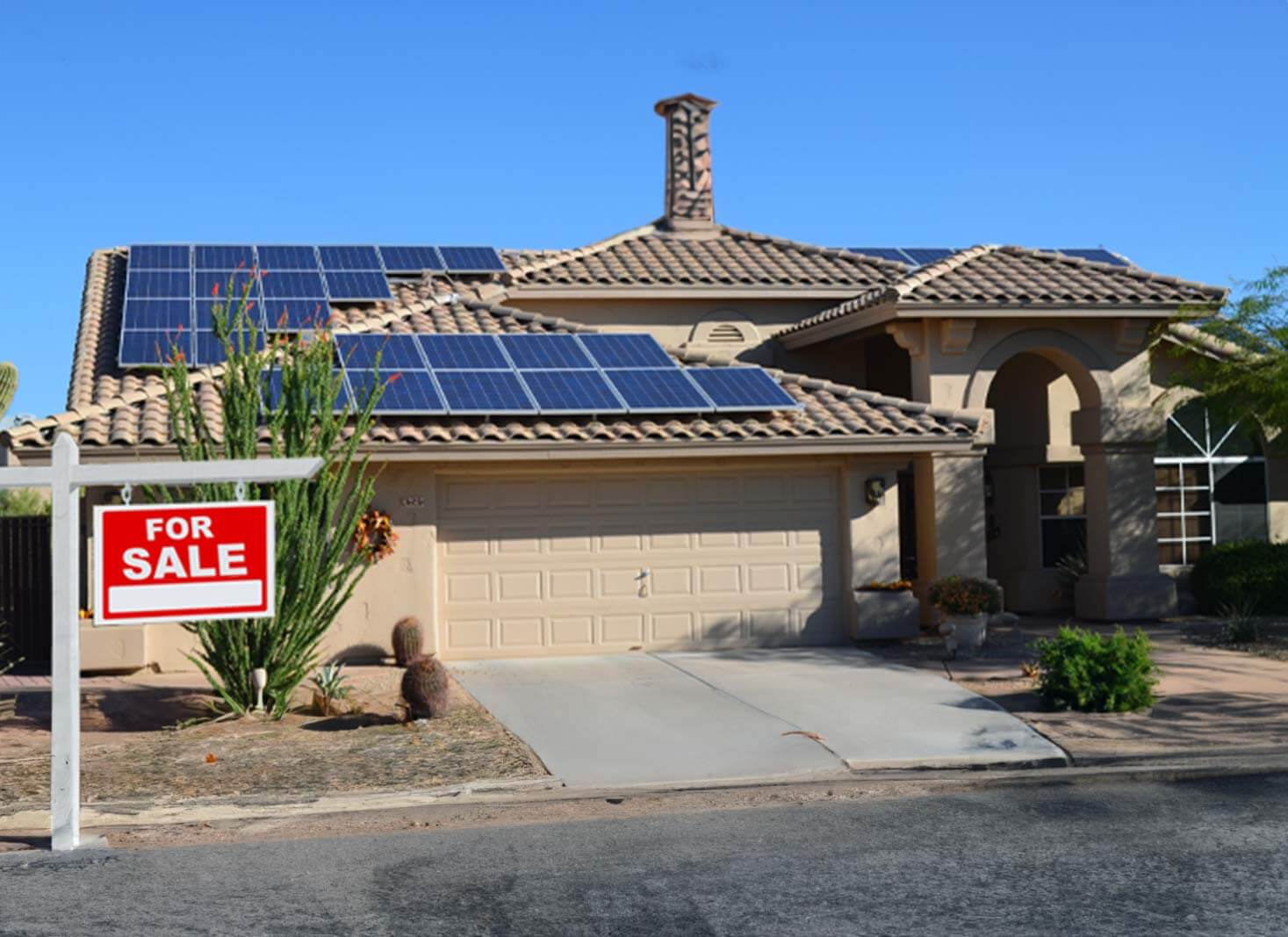
The benefits of solar panels extend beyond just increasing your home’s value. In fact, homes with solar panels can sell up to 20% faster than comparable homes without solar power. This is because the public is increasingly embracing solar energy and recognizing its many advantages.
Not only do solar panels reduce energy costs and promote sustainability, but they also make your home more attractive to potential buyers. This increased demand for solar-powered homes translates to faster sales and a competitive edge in the real estate market. Who wouldn’t want to take advantage of such a golden opportunity?
The cost of installing solar panels
While the benefits of solar panels are undeniable, the initial investment can be daunting.
In Australia, the average cost of solar panel installation is around $2,900 to $14,500, depending on your location and the size, quality, and brand of the panels. A 5kW solar system, for instance, will cost about $5,655 on average when the government rebate is included.
The following table shows the average cost of solar panels depending on size.
| Solar system size | Average cost (rebate included) |
|---|---|
| 2 kW | $3,436 - $3,554 |
| 3 kW | $3,910 - $4,305 |
| 4 kW | $4,671 - $5,224 |
| 5 kW | $5,392 - $6,064 |
| 6 kW | $6,301 - $7,130 |
| 6.6 kW | $6,529 - $7,437 |
| 7 kW | $6,985 - $7,933 |
| 8 kW | $7,672 - $8,778 |
| 9 kW | $8,550 - $9,538 |
| 10 kW | $8,917 - $10,299 |
However, the long-term savings on your energy bills can be significant, making it a smart, money-saving decision for your home.
So, how can you make this investment more accessible and affordable?
Fear not, as there are several ways to offset the cost of installing solar panels, including government incentives and creative financing options. Let’s explore these options in more detail.
Government incentives and feed-in tariffs
Government incentives and feed-in tariffs are fantastic programs that can help lower the cost of installing solar panels, making it easier for you to invest in renewable energy.
In Australia, the federal government provides incentives through the Small-scale Renewable Energy Scheme (SRES) and federal solar rebates, while some states offer their own incentives, such as the Victorian solar panel rebate.
By taking advantage of these rebates and incentives, you can significantly reduce the upfront cost of your solar panel system, and the feed-in tariffs can help with ongoing costs while you still reside in your home.
This means that, over time, your investment in solar power will pay for itself and even generate a profit.
Long-term savings from solar energy
The long-term savings from solar energy are nothing short of astounding. Depending on factors such as energy usage and location, homeowners can save between $10,000 and $30,000 over the lifetime of a solar panel installation.
With such impressive potential savings, it’s no wonder that more and more homeowners are making the switch to solar power.
By recouping the cost of installation and reducing future power bills, long-term savings from solar energy make investing in solar panels a financially savvy decision.
So, not only are you helping the environment by choosing renewable energy, but you’re also setting yourself up for substantial savings in the long run.
Quality matters: choosing the right solar system
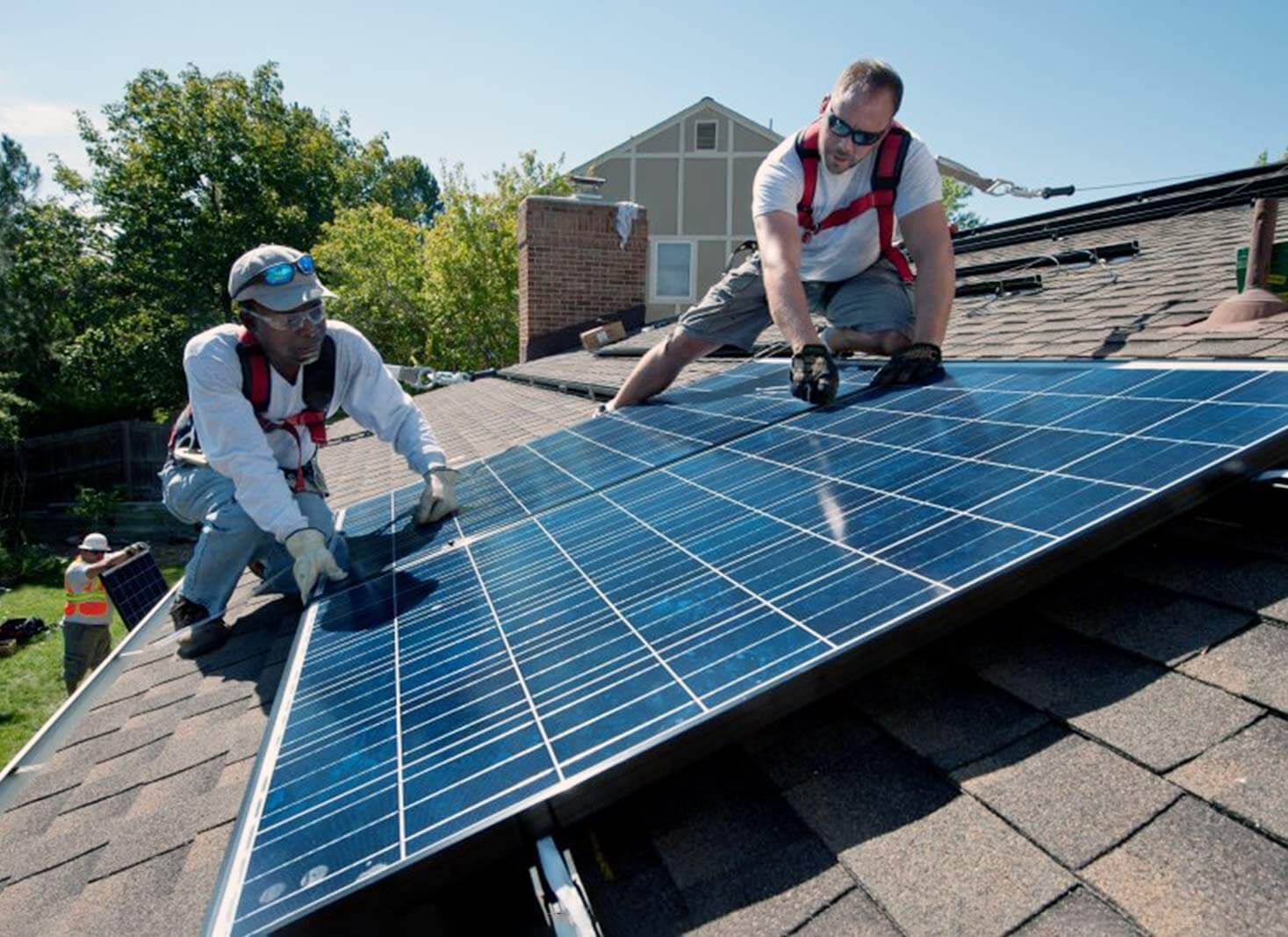
The quality and number of solar panels installed play a crucial role in determining the value boost they can provide to your property.
To maximise the benefits of solar power, it’s important to choose the right solar system for your home, taking into account factors such as the type of panel, performance, panel size, roof compatibility, and mounting.
Let’s delve deeper into the process of choosing the right solar system for your home.
Finding the right solar panel system for your home
Selecting the right solar panel system for your home is critical to ensuring you maximise savings and enjoy long-term efficiency. To make the best decision, consider factors such as:
- The size of the system
- Performance
- Efficiency
- Panel quality
- Warranty
- Manufacturer
- Accreditation
By carefully weighing these factors, you can choose a solar system that will provide optimal results for years to come.
Remember that investing in a solar panel system is not just about saving on energy costs; it’s also about contributing to a cleaner, greener future for our planet. So choose wisely and make a positive impact on both your home’s value and the environment.
Maintenance and warranty considerations
Maintenance and warranty services play an important role in ensuring the longevity of your solar system.
Regular cleaning and inspection of solar panels are essential to keep your system running at its best. It is recommended to have the panels serviced at least once every two years for maximum efficiency.
By investing in regular maintenance and choosing a solar system with a strong warranty, you can ensure that your solar panels will continue to generate clean, renewable energy for years to come. In turn, this will help maintain and even increase the value of your property.
Real estate perspectives on solar panels
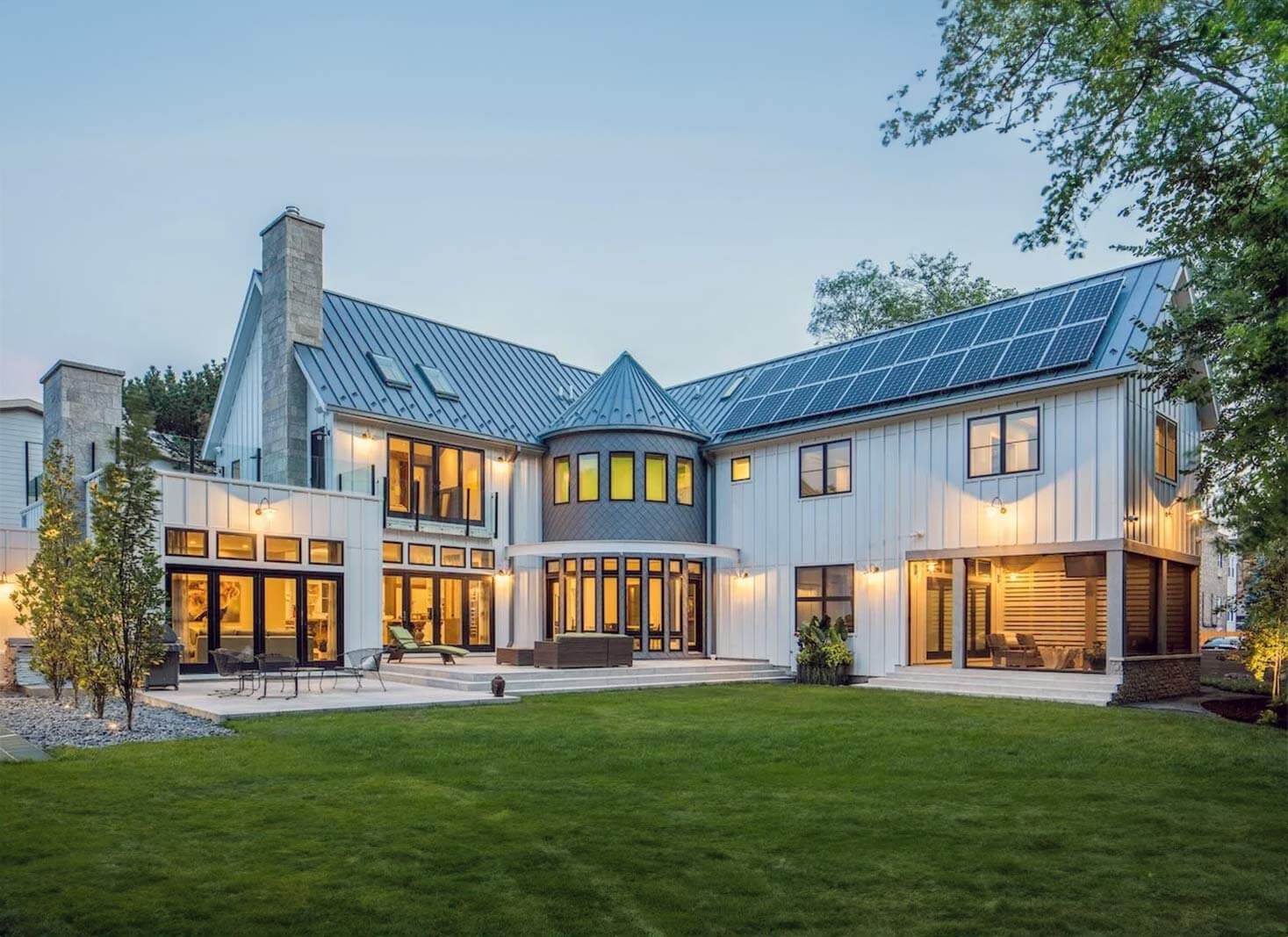
From a real estate perspective, solar panels are a highly attractive feature for potential buyers.
In fact, 77% of Australians believe that a home with solar panels is more valuable than one that relies on traditional energy sources. This means that investing in solar panels can not only increase your home’s value, but also make it more appealing to prospective buyers.
But what about the willingness of buyers to pay more for a solar-equipped home? Let’s explore their eagerness to invest in solar-powered properties.
Buyers' willingness to pay more for solar homes
Homebuyers are indeed eager to invest extra in solar homes. Some studies show that buyers are willing to pay up to $15,000 or more for a solar-powered home.
Additionally, 57% of homeowners would be willing to pay up to $10,000 more for a home equipped with solar energy, and 55% of renters say they would be eager to pay up to $10 a week more in rent for a property with solar.
This willingness to pay more for solar homes demonstrates the growing awareness and appreciation of the benefits of solar power.
Are solar panels a good selling point?
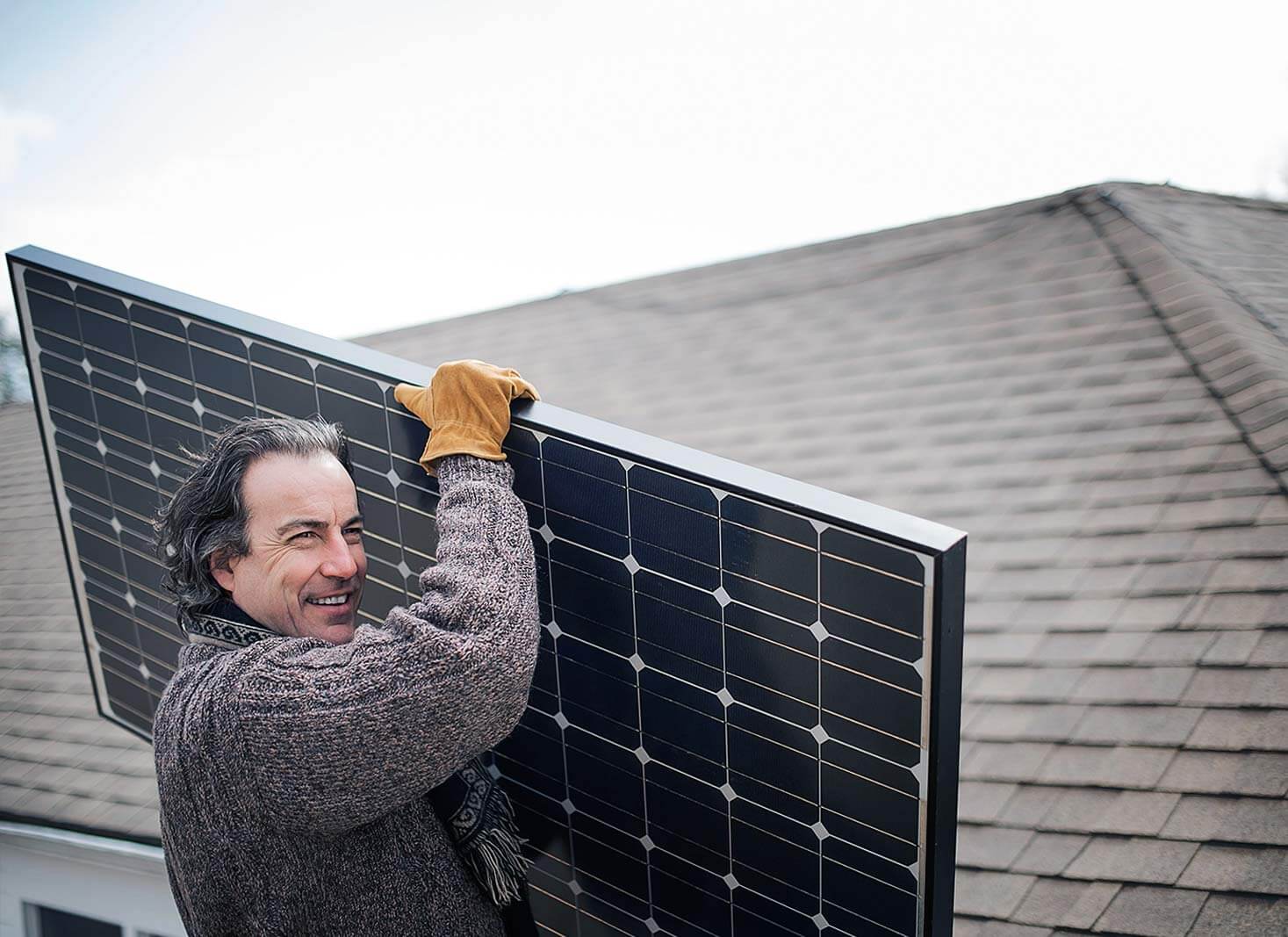
Solar panels can be a good selling point for both landlords and homeowners, as they can increase rental income and home value alike. By reducing energy costs for tenants, solar panels can make rental income more attractive.
Moreover, solar panels can make the property more desirable to buyers, helping it sell faster and increase home value.
But are solar panels a good investment for property owners? Let’s take a closer look at the potential benefits of solar power for property investment.
Is solar good for property investment?
Solar panels can be a great investment for property owners, as they can significantly boost rental income and home value. Solar panels make your property more attractive to potential renters and buyers as they provide a renewable energy source that reduces energy costs.
In addition to increasing property value, solar panels can also help you stand out in a competitive market, making your property more appealing to environmentally conscious buyers and renters.
So, whether you’re a landlord or a homeowner, investing in solar power is a smart decision that can lead to long-term benefits and a greener future.
Can you claim solar panels on tax in Australia?
Yes, you can claim solar panels on tax in Australia, depending on the type of solar panel system installed. This is great news for those looking to offset the cost of their solar investment and enjoy the benefits of renewable energy.
Victoria’s Solar for Rentals program offers attractive rebates to encourage the installation of solar panels in eligible rental properties. Those who take advantage of the program can receive up to $1,400 in rebates.
Landlords who meet the criteria are eligible to apply for an interest-free loan of up to $1,400. This could help reduce the initial cost of installing solar panels.
So, not only can you enjoy the financial and environmental benefits of solar power, but you can also take advantage of tax incentives to make your investment even more worthwhile.
Is solar on a rental property deductible?
Solar on a rental property is indeed deductible, as long as the solar system was installed after July 1, 2017. This means that, as a landlord, you can enjoy the financial benefits of solar power while also taking advantage of tax deductions to further offset the cost of your investment.
By making solar on a rental property deductible, the government is encouraging landlords to invest in renewable energy and contribute to a greener future for all.
So, if you’re a landlord considering solar power for your rental property, rest assured that your investment is not only good for the environment but also for your bottom line.
FAQ's
Investing in solar for your investment property is a smart decision – one that can provide you with excellent returns for years to come. It can lower energy costs, increase property value, and make your rental property more attractive to prospective tenants.
Ultimately, solar will provide a great return on investment for landlords.
Solar panels typically last between 25 and 30 years, depending on the manufacturer. Reputable solar panel brands will usually offer production warranties for 25 years or more. With proper maintenance, you can enjoy the benefit of solar energy for many years to come.
Compare Solar Panel Quotes
Table of Contents
Toggle









